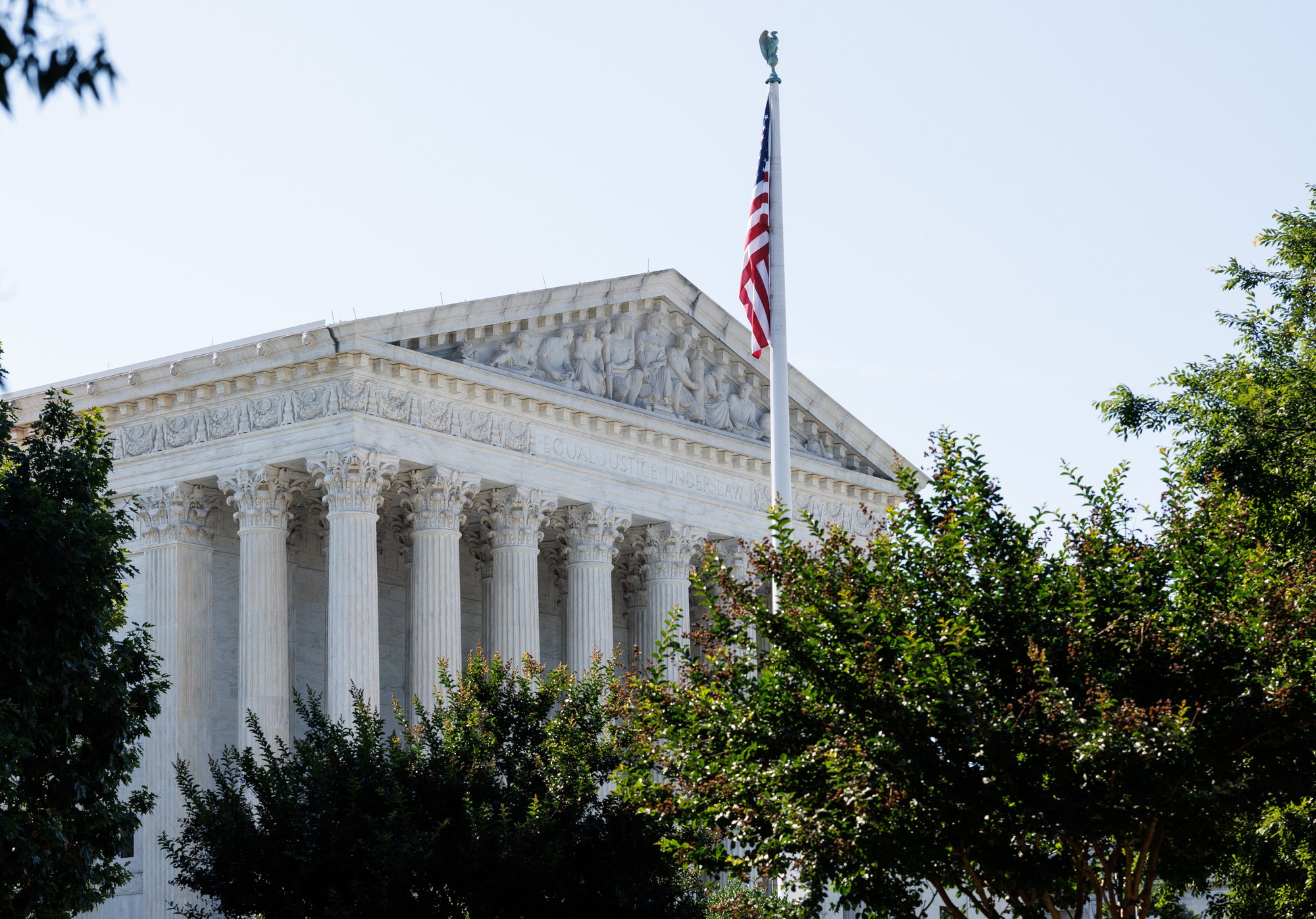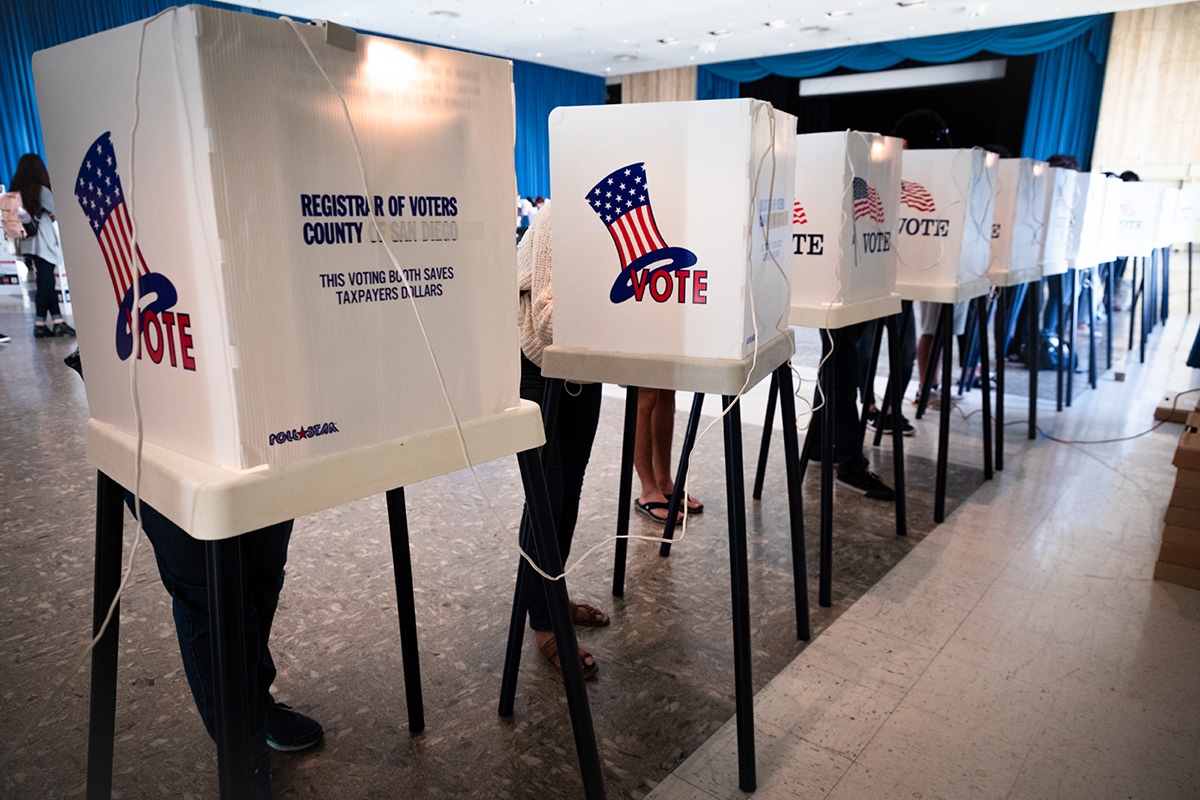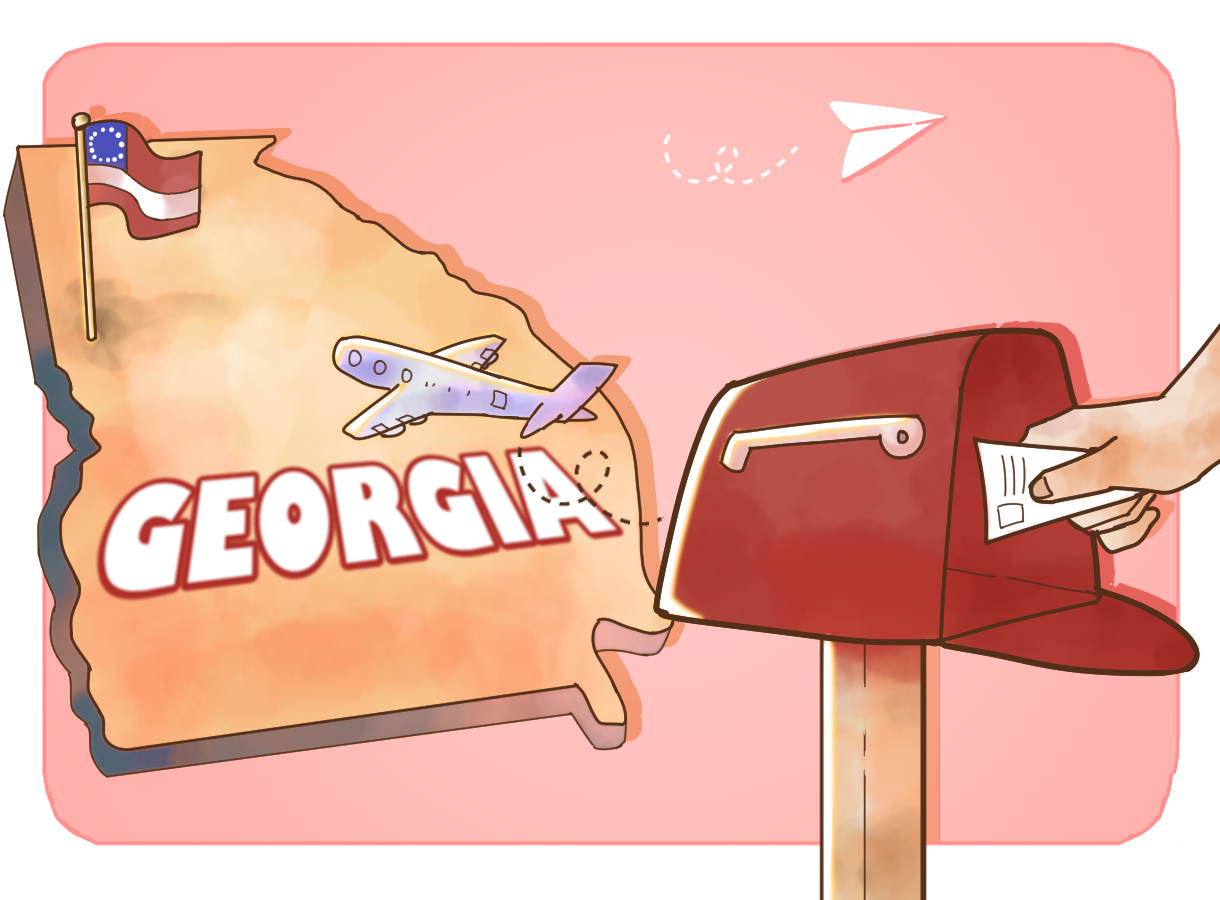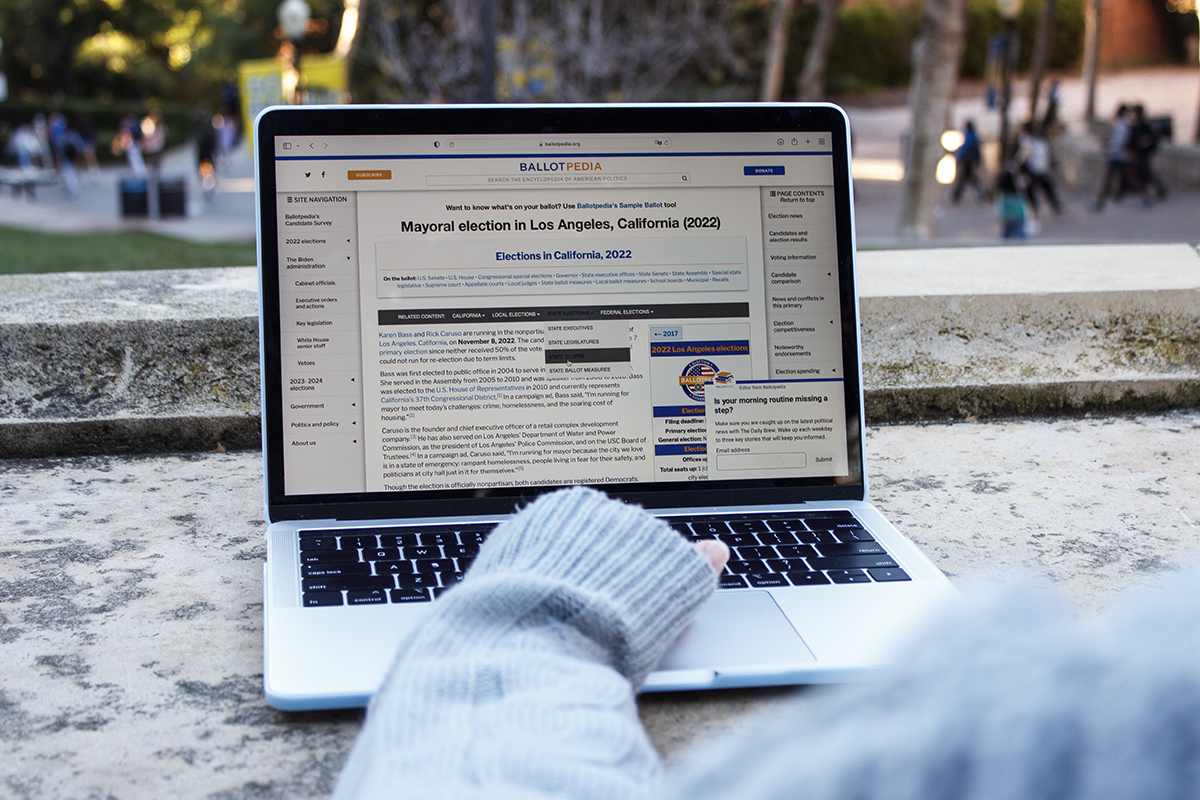Hammer Museum hosts Richard Hasen, discusses voting rights, disenfranchisement
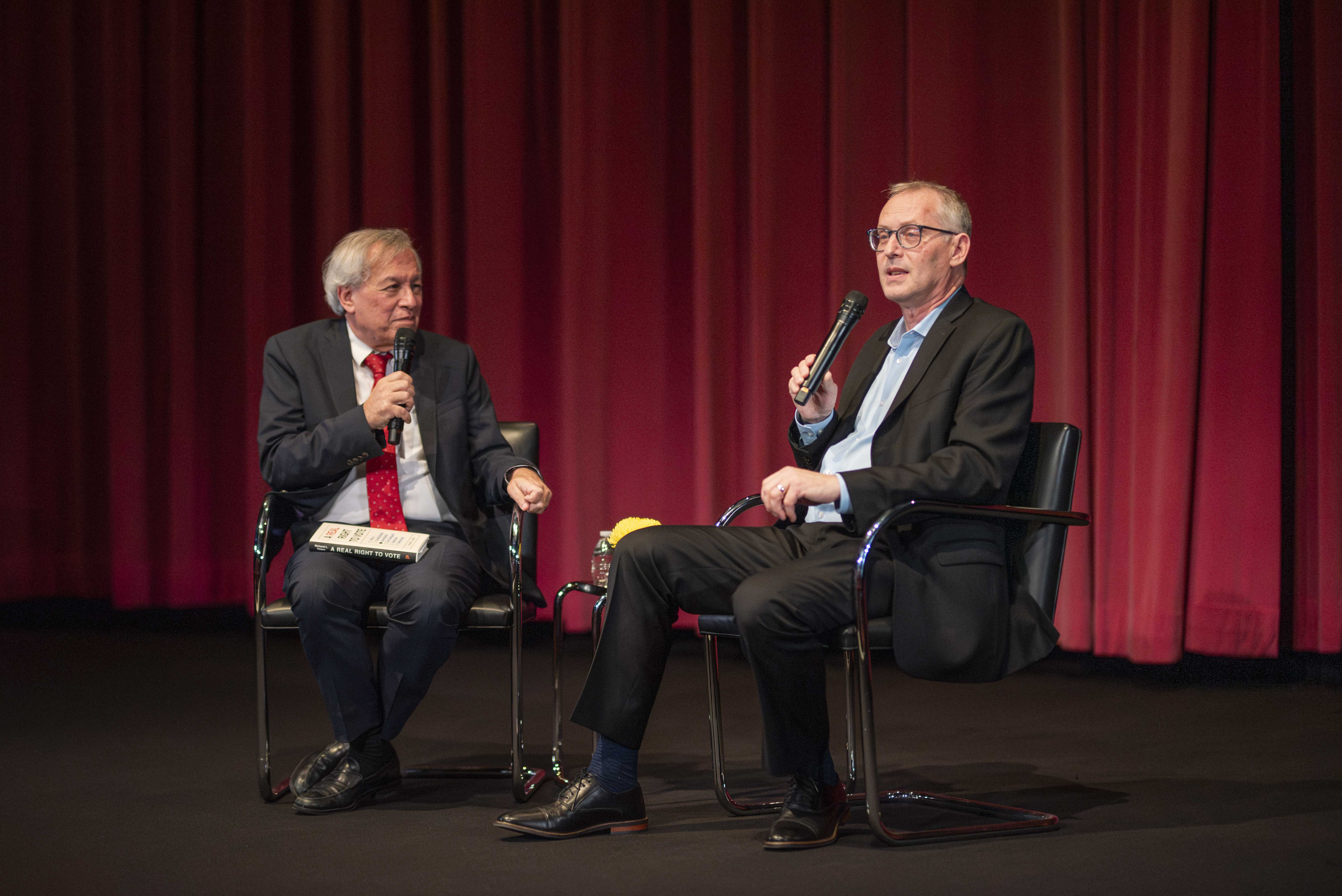
Erwin Chemerinsky (left) and Richard Hasen (right) are pictured. (Renee Rubanowitz/Daily Bruin)
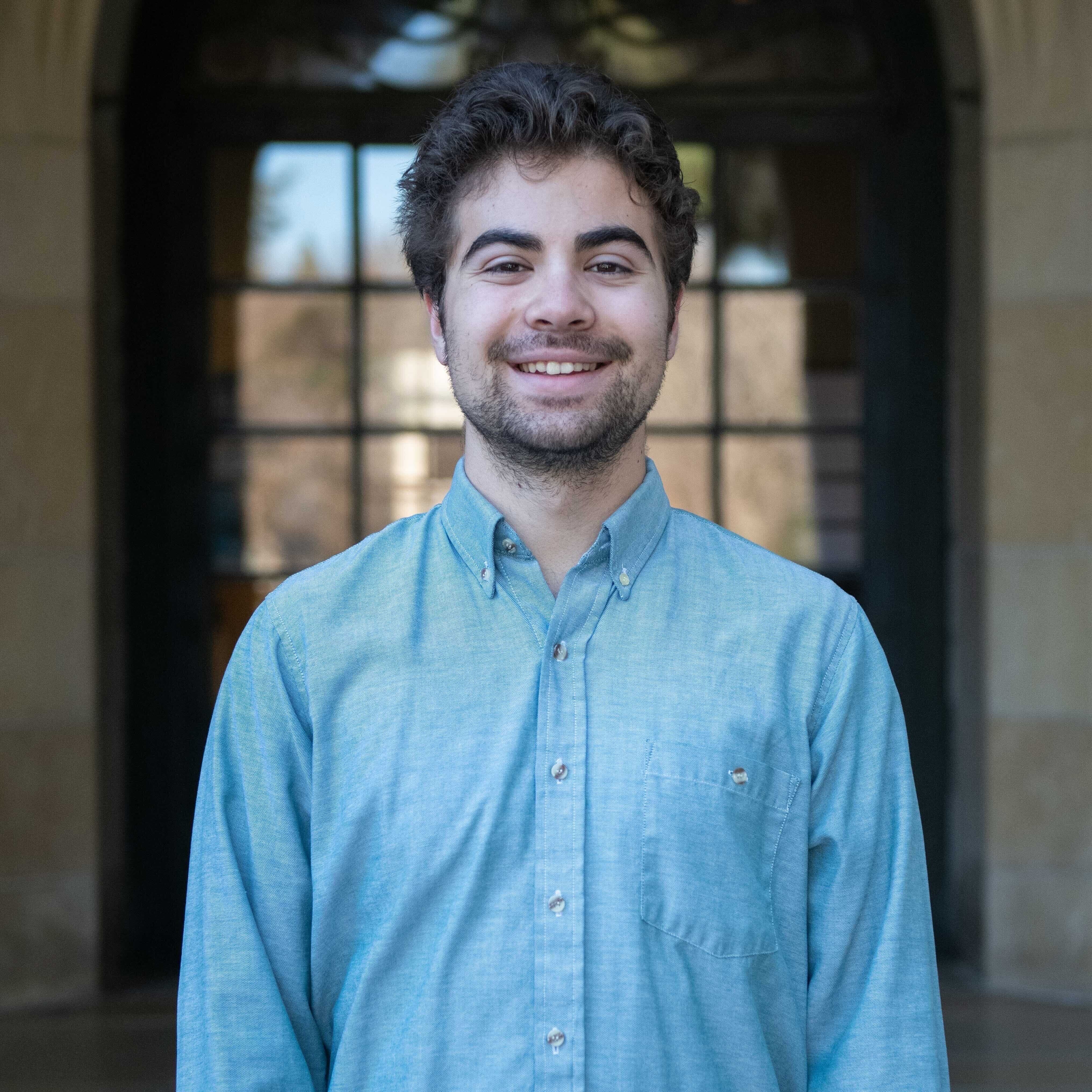
By Sam Mulick
Feb. 20, 2024 9:37 p.m.
This post was updated Feb. 21 at 11:32 p.m.
UCLA law professor Richard Hasen and Erwin Chemerinsky, dean of the UC Berkeley School of Law, held a forum Thursday to discuss voting rights.
The forum, hosted at the Hammer Museum as part of the Hammer Forum, focused on the importance of the right to vote and discussed the history of voting disenfranchisement in the United States. The event – where attendees were given a copy of the U.S. Constitution – coincided with the release of Hasen’s new book, “A Real Right to Vote.”
To open the forum, Hasen said many of the country’s problems with conducting free and fair elections stem from there being no guaranteed right to vote in the Constitution. Instead, granting the right to vote is left up to the states, he said.
“Modern advanced democracies – Germany, Australia, Canada – they don’t have fights over elections,” he said. “A big part of the problem is our constitution … doesn’t guarantee the right to vote (and) doesn’t set up really a system for running elections.”
Hasen said in recent history, the U.S. Supreme Court has not been protective of voting rights, such as when it cut back the scope of the Voting Rights Act of 1965. The Court has seen a nationwide surge of litigation against elections since the 2000 presidential election, when the Supreme Court decided the results of the election in Florida in favor of George W. Bush.
“The Court reminds us in 2000 – and this is not ancient history – the states can take back that power at any time and disenfranchise us,” he said. “That is really, profoundly anti-democratic.”
During the event, Hasen and Chemerinsky also discussed the Constitution’s historical disenfranchisement of groups, including Black voters, Indigenous voters and members of the military.
Hasen said the Court’s historic lack of support for voting rights and Congress’ unwillingness to expand voting rights under its power has led him to propose a constitutional amendment enshrining the right to vote. In his amendment, Hasen said he would include the automatic registration of all eligible voters and protect the right to vote against future judicial attacks.
Hasen said the issue of voting rights is especially important now because of the events surrounding the 2020 presidential election, during which Republican presidential candidate and then-president Donald Trump made efforts to overturn the results of the election.
“Unfortunately, the story of the 2020 election was a story of attempted election subversion,” he said. “While some things have been done to make it better, … there is still some risk to our elections.”
Chemerinsky asked Hasen during the event how the amendment would combat the large number of voting restrictions that have been put in place since the 2020 election, especially in “red states” that voted for the Republican nominee in the last presidential election.
Hasen said his amendment would prevent states from making it overly burdensome to vote by striving to reduce election day wait times to less than 30 minutes and allowing voters to fix their ballot if erroneous marks made it uncountable.
Hasen also said Los Angeles County, as the largest election jurisdiction in the country, is a model example of moving from politicization to professionalization in administering elections, especially in how it makes voting accessible by offering ballots in 13 different languages.
Hasen also said important political victories have made it harder to steal elections. For example, many deniers of the 2020 election results have lost their bids for secretary of state in key battleground states, and Congress has changed laws that Trump, while still in office, tried to manipulate to overturn the election.
“We are not asleep anymore about the risks to our democracy,” Hasen said. “People, at least, are aware that we can no longer take our peaceful transitions of power in our free and fair elections for granted.”
Looking ahead to the 2024 election, Hasen said it is important to increase voters’ confidence in elections, and people should feel motivated to make a difference in expanding voting rights by amplifying the voices of local election officials.
Community members and students said they were glad the Hammer hosted an event that brought a call to action and positive discourse on voting rights. Law student Matthew Cooke said he was drawn to the event because of the relevance of voting rights in current politics.
“It’s important that we have events like this and people doing this sort of work to present a more positive, inclusive vision of voting,” Cooke said.
Sandy Burnett, a UCLA alumnus, added she found hope in Hasen’s vision of reforming elections.
“It’s somewhat hopeful in the sense that people are seeing this long vision that we could actually change this and fix this,” she said. “It’s fixable. It just takes a lot of work.”



